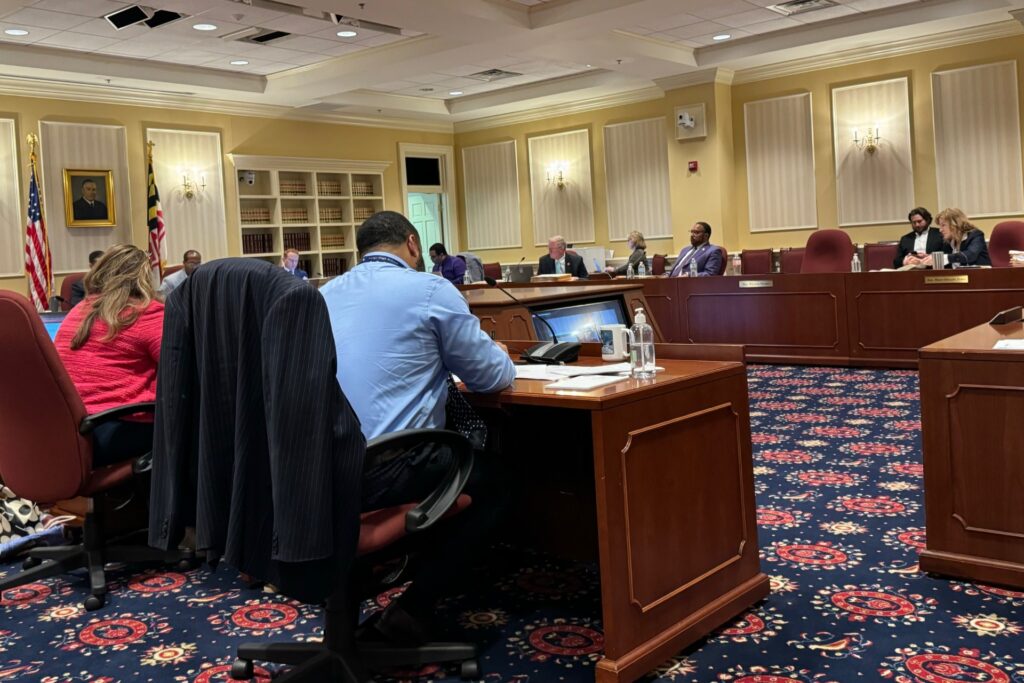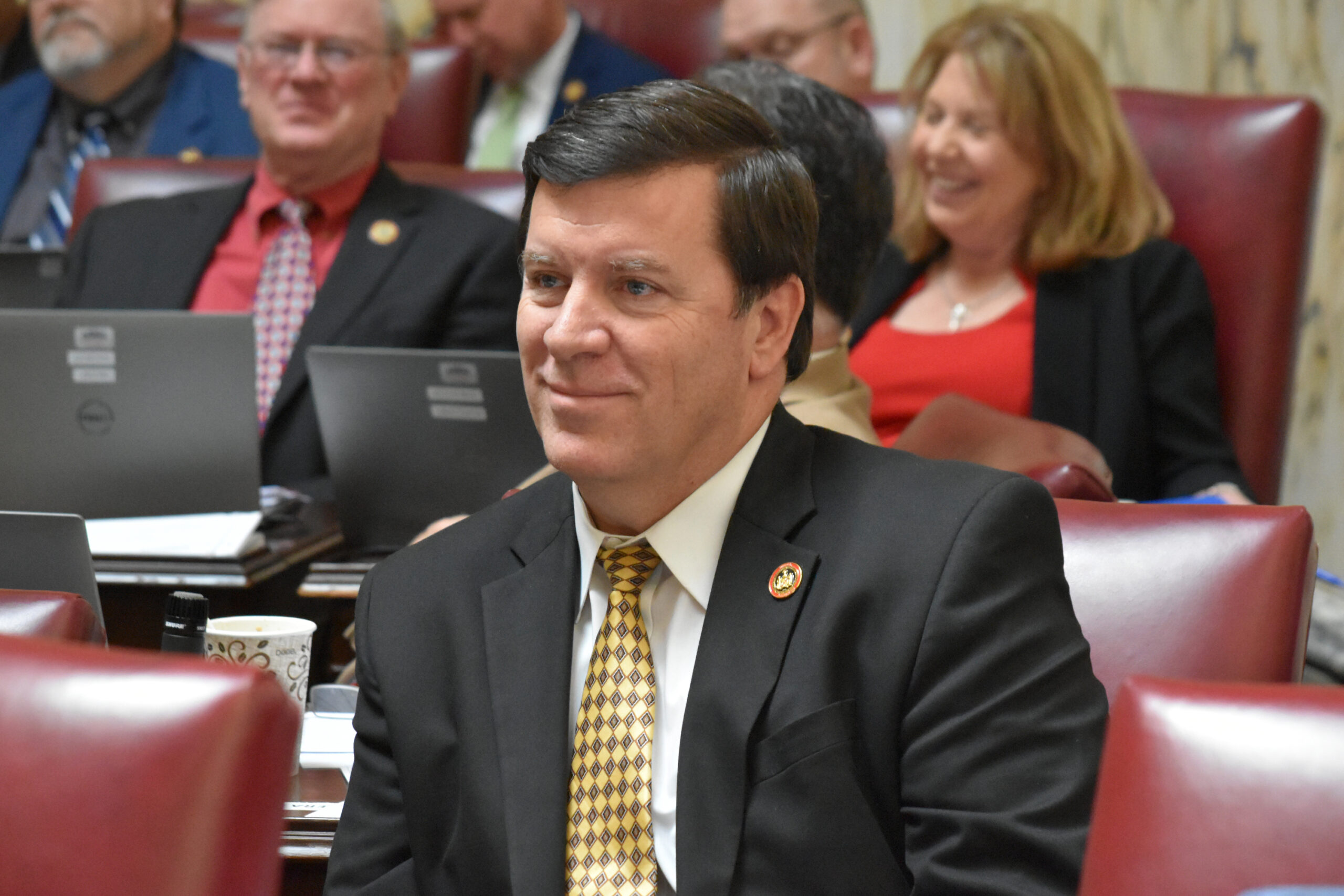
A Senate panel recommended several changes Wednesday to resolve differences on separate juvenile justice reform bills that have been moving through the General Assembly.
The Senate Judicial Proceedings Committee advanced House Bill 814 to the full Senate with a few provisions that coincide with the Senate version of the legislation — including that children ages 10 to 12 could be sent to juvenile court if charged for a third-degree sex offense, aggravated animal cruelty and certain firearm offenses.
One provision from the Senate version added to the House bill would require a youth charged for motor vehicle theft to receive a Children in Need of Supervision petition, also known as CINS. The petition would allow that youth and the youth’s family to qualify for a variety of services.
At least one provision left in the House bill would require all 23 county and Baltimore City school boards to offer alternatives to public education for youths registered as juvenile sex offenders.
A proposed new Commission on Juvenile Justice Reform and Emerging and Best Practices, which would review state Department of Juvenile Services programs and services, would hold its first meeting by June 1. Earlier versions of the legislation noted a start date of July 1.
With the exception of the commission, the legislation would go into effect Nov. 1. The previous House bill had a Jan. 1, 2025 effective date, while the Senate’s had been Oct. 1.
The Judicial Proceedings Committee added two additional amendments not proposed in the House and Senate measures. One amendment would require the Maryland Department of Juvenile Services to give notice within 24 hours to the court, a local state’s attorney and a child’s attorney “whenever a child violates the terms of electronic monitoring.” The other would require a youth accused of a first-time gun offense to have a pre-hearing detention, while a youth is detained at a DJS facility.
A department report from last year noted that about 7% of people arrested in Maryland were juveniles.
The limited number of youths affected, lack of data and expanding DJS jurisdiction to include children ages 10 to 12 were three reasons why Sen. Jill P. Carter (D-Baltimore City) voted against the bill. She and Sen. Charles E. Sydnor III (D-Baltimore County) were the only two committee members who voted against advancing the measure, again, on Wednesday.
“I hope that we’ll actually make sound law based on the data. This bill is more for show than it is for substantive changes,” Carter said.
Besides the legislation, Sen. William C. Smith Jr. (D-Montgomery), chair of the committee, said additional services will be provided for young people, such as $111 million in behavioral health grants and another $24 million for DJS programming.
“The components of this bill are a significant part of growing accountability and transparency in the entire process,” he said. “We’ve taken a very comprehensive approach at addressing this issue. We’ve done a lot of significant things, but we’ve got a long way to go.”
Del. Luke Clippinger (D-Baltimore City), chair of the House Judiciary Committee, said he hadn’t seen the amended changes and couldn’t comment Wednesday evening.
The legislators must work quickly because the 90-day session ends at midnight Monday.




 Creative Commons Attribution
Creative Commons Attribution